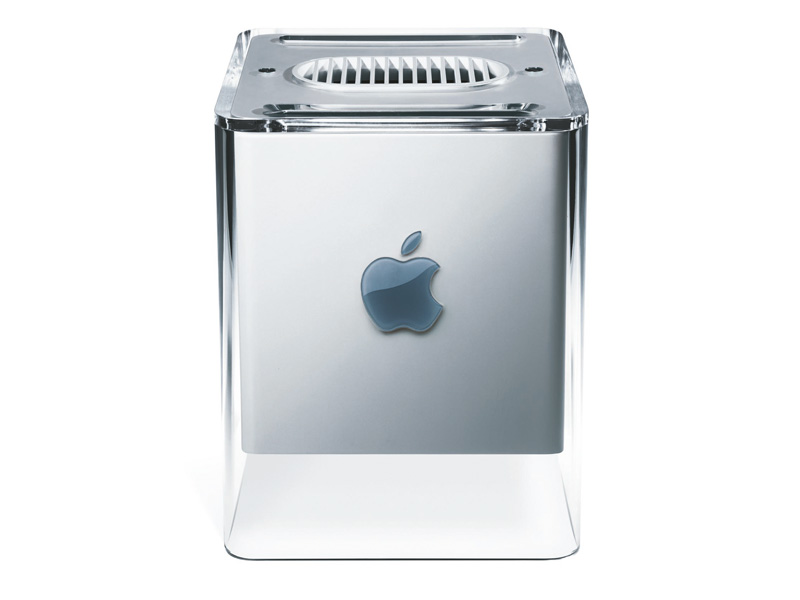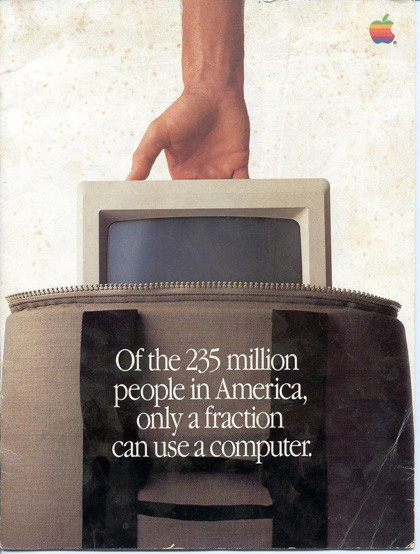Has Apple sold out?
From Antennagate to suicidal subcontractors, Apple can't seem to do anything right

Buying Apple is as much about ideology as it is about technology.
We buy Apple because we believe devices should delight, not disappoint. We buy Apple because details matter, from the clickability of a button to the curve of a corner or the positioning of a port.
We buy Apple because we think perfection is worth striving for, and worth paying for. And we buy Apple because Apple isn't a heartless corporation whose only interest is the bottom line.
Perhaps that was true in the early days, but is it still true now? The iPhone 4 signal issues and problematic 3G/iOS 4 upgrades suggested a very un-Apple lack of quality control, and the 22-day gap between the Antennagate story breaking and Apple offering free bumpers did serious damage to the iPhone's reputation.
Lampooned on Letterman, joked about by Jeremy Clarkson and the butt of online gags, the iPhone was even compared to Windows Vista – by Microsoft. That's got to hurt.
It seems that Apple can't do anything right nowadays. It has been accused of censorship and bullying, and implicated in subcontractor suicides and heavyhanded policing. Despite creating the most impressive, most popular products in its entire history in the form of the iPad and the iPhone 4, Apple is seen by many as a company that's losing the plot.
RSS inventor, Mac and iPhone user and Apple shareholder, Dave Winer, summed up the prevailing mood in July, when he wrote:
Sign up for breaking news, reviews, opinion, top tech deals, and more.
"I don't think the problem is with the iPhone 4. What we're seeing is Apple's charm wearing off. The Reality Distortion Field bubble is about to burst. Their run as the Exceptional Company is about to end…
"Apple is a company that desperately needs to grow up and wipe the smile off its face, roll its sleeves up and start to appreciate that it's no longer the upstart, the underdog, the Crazy One in the Richard Dreyfus ad. They are The Man, the Boss, the one who, from now on, everyone is going to be taking shots at." Is he right?
Three takes
Let's play devil's advocate and go with the 'Apple's Lost It' crowd. What's going wrong? Analyst Rob Enderle of the Enderle Group has three suggestions.
One, it's become cocky, just as IBM, Microsoft and Google did when they became enormously successful. Two, Steve Jobs won't let Apple PR do its job ("Jobs owns the process and is so controlling that the relationships and early warning systems PR needs to address problems like the ones you list don't exist [at Apple]," says Enderle).
And three, Apple has lost "a person or persons critical to their good decisionmaking process," such as the late Jerry York, who joined Apple's board in 1997 and helped Jobs wrest Apple from the jaws of defeat.
There's no doubting Apple is hugely successful: if money's the root of all evil, Apple must be growing horns and a tail.

RISE TO SUCCESS: Not even the sky's the limit (Source: Yahoo Finance)
What's even more remarkable is that with very few interruptions, Apple's share price has been on a dramatic upwards trajectory since the return of Jobs in 1997. The big question is whether Steve Jobs has become cocky because Apple has become so successful, or if Apple has become so successful because Steve Jobs is cocky. We suspect it's the latter.
He isn't exactly famous for his humility: in 1982 the father of the Macintosh, Jef Raskin, said that Jobs "would have made an excellent king of France".
The Bono of bits
In many ways, Jobs is the Bono of bits: both men genuinely believe that they can change the world, both men have enough charisma to make their egos bearable and both men inspire devotion and derision in equal measure – not just from distant observers, but from the people who know them best.
According to Andy Hertzfeld, one of the original members of the Macintosh development team, when Apple executive Jean-Louis Gassee saw Jobs' car parked in a handicapped space he commented that "I never realised that those spaces were for the emotionally handicapped."
Another pivotal Apple figure, Macintosh project manager Bud Tribble, coined the term Reality Distortion Field back in 1981.
As he explained to Hertzfeld, in Steve's presence "reality is malleable. He can convince anyone of practically anything. It wears off when he's not around… If you tell him a new idea, he'll usually tell you that he thinks it's stupid. But then, if he actually likes it, exactly one week later, he'll come back to you and propose your idea to you, as if he thought of it."

ALL GROWN UP: There was a time when Apple played up to its status as underdog. No more
Many of Apple's biggest successes come from Jobs ignoring everybody else. When Apple engineers decreed in 1997 that the iMac simply wasn't possible, Jobs overruled them "because I'm the CEO, and I think it can be done." The iMac became the most successful personal computer in history.
Then there was the iPod – "No wireless. Less space than a Nomad. Lame", one Slashdot editor wrote – and the iPhone. Analyst Todd Sullivan predicted that the iPhone would send Apple shares tumbling, Mobile Today said "iPhone flops despite hype" and author David Platt wrote: "the forthcoming release of the Apple iPhone is going to be a bigger marketing flop than Ishtar and Waterworld combined."
Steve Ballmer could barely suppress his glee. "Five hundred dollars?" he spluttered. "Fully subsidised? With a plan? I said that is the most expensive phone in the world. And it doesn't appeal to business customers because it doesn't have a keyboard."

Contributor
Writer, broadcaster, musician and kitchen gadget obsessive Carrie Marshall has been writing about tech since 1998, contributing sage advice and odd opinions to all kinds of magazines and websites as well as writing more than twenty books. Her latest, a love letter to music titled Small Town Joy, is on sale now. She is the singer in spectacularly obscure Glaswegian rock band Unquiet Mind.